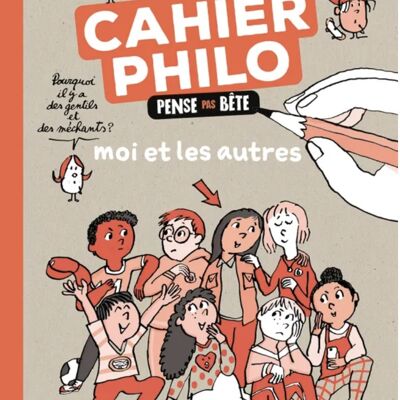


This Invitation to philosophize, a bit like an invitation to travel, is for those who have seen the lands of philosophy without ever landing there, and who can experience this "nostalgia for the country that we do not know", as Baudelaire writes. It is intended as an incentive to embark, to visit not the entire country, but to make a few incursions and test the waters. In about ten chapters like so many possible destinations, it is in turn the multiple facets of lies or truth that are addressed, those of fear or courage, jealousy or trust, the desire for revenge or of forgiveness, love or indifference; then the various forms of the relationship to time, of dream or reality, of theft or possession, of disobedience or obedience, of the perception of life or death. Each theme is gradually deepened from ordinary experiences and commonly experienced feelings that make you think, but also from stories borrowed from cinema or literature. At the same time, the use of rigorous definitions, concepts, such and such a discussion or philosophical text makes it possible to better understand and resolve the difficulties raised. The ten texts collected in this book were originally published in the “Philo ado” collection by Rue de l’échiquier editions. First designed to be read from the age of 14, these books have also been able to reach an adult audience, eager to approach philosophy or reconnect with it. __________ The team of authors This book was designed by Marie-France Hazebroucq. With an Agrégation in Philosophy, she has spent her entire career teaching in senior and preparatory classes. Under his direction, each of the book's contributors – Sabrina Cerqueira, Philippe Fontaine, Malcolm Hammer, Barbara de Negroni and Stéphanie Vermot-Petit-Outhenin – developed a personal reflection around a subject, presented in the form of fragments, of fragments. The discourse is based on concrete examples borrowed from cinema and literature and on testimonies. In the margin of the text, notes provide benchmarks and indicate the references of the texts of the philosophers who underlie the author's words. Philosophy helps us to live on a daily basis and this book demonstrates it: built around subjects and experiences of everyday life, written in a simple and accessible way, it offers a real initiatory journey into the world of ideas.






























